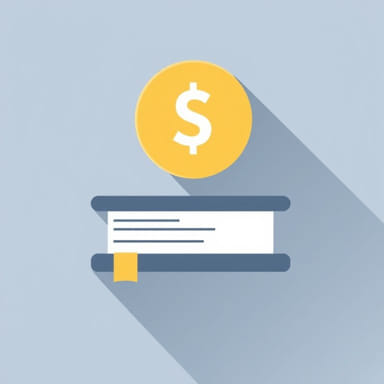Many graduates in the UK are discovering that they may have been overcharged on their student loan repayments, especially through the self-assessment tax system. This issue arises when individuals are required to file their own taxes, such as freelancers or those with multiple income streams. Often, the system does not automatically match repayments with accurate loan balances, resulting in excessive deductions. These overpayments can go unnoticed for years unless actively investigated by the borrower. Understanding how student loan self-assessment overcharge happens and how to resolve it is crucial for any former student managing loan repayments.
What Is Student Loan Self Assessment?
Overview of Self-Assessment
Self-assessment is a method used by HM Revenue and Customs (HMRC) in the UK to collect income tax. People who earn income outside of traditional employment like self-employed individuals, landlords, or company directors are required to declare their income through a self-assessment tax return.
If you have a student loan and are required to complete a self-assessment, your student loan repayments will also be calculated based on your declared income. These repayments are added to your final tax bill and must be paid alongside your income tax and National Insurance contributions.
How Student Loan Repayments Are Calculated
HMRC calculates student loan repayments by applying a fixed percentage to income that exceeds a certain threshold, depending on your loan plan (Plan 1, Plan 2, or Plan 4). For example, if you fall under Plan 2, you’ll pay 9% of any income above the repayment threshold.
Understanding Overcharges on Student Loans
Why Overcharges Happen
Student loan self-assessment overcharges typically occur due to a lack of communication between HMRC and the Student Loans Company (SLC). Some common reasons for overcharges include:
- Repayments being taken even after the loan has been fully paid off
- Incorrect income data or outdated loan balance information
- HMRC estimating payments without real-time updates from SLC
- Delays in updating the loan repayment status after submission
Because the SLC does not always have access to up-to-date tax return data, it’s possible for overpayments to continue, especially if the borrower has switched to self-employment or multiple income sources.
Real-Life Examples
Many individuals only find out they’ve overpaid their student loan when they request a statement from SLC or check their balance after several years. There have been cases where thousands of pounds were deducted unnecessarily because repayments continued even after the debt had been cleared.
How to Check If You’ve Overpaid
Review Your Loan Statements
The first step is to log in to your online account with the Student Loans Company. You can review your current balance, past payments, and see if any unusual or excessive repayments have been applied.
Match with HMRC Records
Check your HMRC self-assessment records to see how much you paid in student loan contributions each year. Compare these figures with your SLC statements to identify discrepancies.
Look for Common Warning Signs
- Your loan balance hasn’t changed significantly despite years of payments
- You continue to be charged after paying off the full amount
- Your repayments seem unusually high for your income level
Steps to Resolve a Student Loan Overcharge
Contact HMRC and SLC
If you suspect an overcharge, contact both HMRC and the Student Loans Company. You will need to provide detailed information, including tax returns, payment history, and loan statements. It’s important to address both organizations since they each handle different parts of the repayment process.
Request a Refund
If your overpayment is confirmed, you can formally request a refund. The SLC handles refund requests, but you may need documentation from HMRC to support your claim. Be prepared for the process to take several weeks or even months depending on the complexity of your case.
Set Up a Direct Debit
To avoid overpayments in the future, consider switching to a direct debit repayment method. This method allows the SLC to stop collecting once your balance reaches zero, which doesn’t always happen when paying through tax returns.
Preventing Future Overcharges
Keep Track of Your Balance
Make it a habit to check your student loan balance at least once or twice a year. Being aware of your remaining debt can help you catch overpayments early and avoid long-term issues.
Notify SLC Before Final Repayments
When you’re close to paying off your student loan, inform the SLC and ask to switch to direct debit. This way, they will notify you of the final amount and stop collecting once the balance is paid off, avoiding unnecessary repayments via HMRC.
Stay Updated with HMRC
Always file your self-assessment accurately and on time. If your financial situation changes like a new job or reduced income make sure it’s reflected in your tax return. The more accurate your reporting, the lower the risk of overpayment.
The Role of Legislation and Oversight
Government Responses
The UK government has acknowledged the issue of student loan overpayments and has implemented some measures to improve communication between HMRC and the SLC. However, these systems still rely heavily on manual updates and borrower initiative.
Calls for Reform
There have been increasing demands from advocacy groups for automatic alerts when a loan is close to being paid off. Some suggest integrating real-time data sharing between HMRC and SLC to eliminate human error and overcollection.
Student loan self-assessment overcharge is a growing concern among UK taxpayers, particularly for those who are self-employed or earning through multiple channels. Without proper monitoring, it’s easy to overpay and not realize it for years. Understanding how repayments are calculated, maintaining records, and regularly checking your balance are essential steps in preventing and resolving overcharges. While government systems are improving, taking proactive steps as a borrower remains the best defense against unnecessary student loan deductions. If you think you’ve been overcharged, act quickly to recover your money and set up safeguards for the future.
